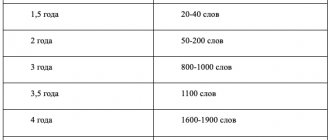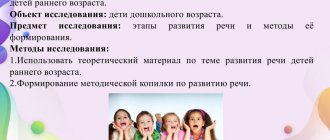An unsuccessfully pronounced phrase can cause conflict in the family, at work, in friendship, and also when talking with a stranger. Therefore, a considerable amount of literature has been written on the topic of communications between people. However, before we learn how to express ourselves correctly, let's look at how to improve your vocabulary. After all, it is impossible to build sentences and formulate thoughts if there are no basic building blocks, which are words. Because it is from words that people construct sentences.
If you think that your vocabulary is quite enough to communicate and express your thoughts, most likely you have forgotten that there is no limit to perfection. For a visual example, I will give a few phrases below, think about them.
- I went to the store.
- I rode my bike to the nearest supermarket.
- I went to the nearest store to buy fresh fruit.
Do you see the difference? These are just 3 different answers to the question “where have you been?” And if you are telling a story to someone, you can embellish it by turning on your imagination. For example, “furiously squeezing the gas pedal of my old bicycle, I rushed headlong to the nearest supermarket to supplement my daily diet with fresh fruit, and on the way...” And so you can compose a whole fascinating story. What am I getting at? If the storyteller has a rich vocabulary (aka vocabulary) and great imagination, then he can tell a story for a very long time and fascinatingly. By the time he finishes his story, it may already be night! People whose vocabulary is replete with copious censor words are interesting to listen to. Take, for example, a person who says this: “Well, I just... uh... went to the store to buy these... uh... well, those that eat, well, these... like vitamins... fruits, yeah.” It’s hard to listen to someone like that to the end, and he himself will be surprised if his listeners don’t disperse before he explains himself. So, if I convinced you, then let's move on. Not to the store by bike, no, read on =)
Our vocabulary, like that of any other person, depends on the words that we use every day in our everyday speech. The words we regularly use are the basis of how we communicate with other people. If our vocabulary is rich in words with synonyms, then we can formulate messages more clearly. And not only text ones.
However, there is an opposite popular belief that a person’s rich vocabulary will certainly include complex, rarely used and highly specialized words (it’s not always possible to even read such words; it’s easier to memorize a tongue twister). But knowing complex words does not mean that you need to use them everywhere in order to show off your intelligence. Just the opposite. Using your intelligence and having an extensive vocabulary with a bunch of synonyms, you can choose which words are best to use in a conversation with specific people in order to express your thoughts more clearly or to understand what the interlocutor is talking about. For example, knowing the meaning of medical terms, it will not be difficult to better understand the doctor and, perhaps, he will even decide that you are from the medical field and will be imbued with respect for you.
Expanding a person’s vocabulary is associated by some people with hard mental work. But this is just an illusion that our brain creates. He is lazy by nature and does not like to exert himself. “Why do something if you don’t have to do it?” - that’s exactly what our brain thinks. The most important thing is to get into the habit of expanding your vocabulary every day. The first few days you will want to give up everything, but you need to continue training.
How to increase your vocabulary
The question is often asked: how to increase vocabulary? How to increase your vocabulary? Why do the words end?
Below we detail what you need to do to increase your vocabulary.
- The story that started it all
- How to increase your vocabulary
- To parents. If you want to develop your child's vocabulary.
- Written communication is no substitute for oral communication
- Books for development
- Practical exercise
- Surround yourself with people with different vocabulary
- How junk words hinder vocabulary development
- Where to study
- Bottom line
First the story that started it all
And then it will be about how to increase your vocabulary of spoken words and much more.
A high school girl was brought to me so that I could develop her vocabulary and teach her to perform well. Her parents insisted that I teach her individually and not in a group, paying the cost of the expensive tuition.
The girl's vocabulary (spoken) was almost zero.
But there were “Uh...” “Like...”, “Well...”, “In general...”, “You understand...”, “In short...”. She used these words easily and naturally: “Listen to the joke...”, “I’ll tell you right now...”.
And then - a dead end. I've run out of words.
I take out a collection of parables. I choose the shortest one. Please retell it in your own words.
And here the girl really surprised me.
The girl remembered all the words until the middle of the story. And she shot them out with a machine gun. One to one to the text. That is, the memory is wonderful. Then she faltered and forgot a word. And she reached out to the leaf to peek.
I take the leaf: “Now - in my own words.”
She was never able to fully tell the simplest parable from this collection. Didn't have a vocabulary? (She had a vocabulary, because she had just read these words.)
I give you the following parable. The task is the same: retell it in your own words. But there was more to the parable. The girl’s “RAM” was overloaded. She couldn't tell a simple story even halfway through. She fell silent. So I was able to find the right words to finish my story.
And it became clear what we would have to work with first. Not with gestures or pauses. And teach a high school student to speak in her own words , and not to memorize words from the text.
In essence - TEACH A PERSON TO SPEAK.
Enrich not so much your vocabulary as your “spoken vocabulary.”
By the way, it should be noted that the girl is not stupid, she studied very well at school.
For the experiment, he gave me another task - to write a parable, which she read, but could not tell. The student completed the task quickly, in a few minutes. And she wrote it almost verbatim . This means there is a problem with spoken language. (The problem is not with speech, and not with vocabulary, the problem is with SPOKEN SPEECH)
We started working. any parables with ease . And other, even complex, texts. She began to philosophize easily on “free topics.” The words “Eh...”, “Like...” disappeared from her speech because they were no longer needed.
Time has passed. The girl entered the institute and sent me a letter of gratitude that here she is the best speaker at seminars.
Now let's move on to our topic
My name is Bolsunov Oleg. I am a public speaking coach, I teach adults and children online and offline every day. And, you see, vocabulary is one of the important topics in public speaking.
Method 4: Freestyle
The famous Russian rapper Noize MC advises an excellent exercise to help free your mind and understand how many new words have appeared in your active vocabulary. The exercise is simple: start every morning by writing down your stream of thoughts. Take 3 sheets of paper and write everything that comes to mind. Don't try to artificially evoke thoughts or refine the recording. Do not use commas, periods, dashes. Just write the words. Afterwards, take a break, drink Glycine D3 and go about your daily business.
It is no coincidence that we mentioned Glycine D3. Taken in the morning, it provides energy for the whole day. Helps you concentrate and complete daily tasks with 100% efficiency.
After 4-5 hours, take time to analyze your morning freestyle.
Circle the words you learned recently. Now, when you perform the “Commenting” exercise described in the first method, eliminate these words and replace them with new ones. If they appeared in the stream of consciousness, it means they are fixed enough to shine in any dialogue.
All methods are aimed at quickly increasing vocabulary in communication. Use them constantly, and in six months you won’t recognize your speech. Have a good day!
The phrase “I have no words” often has more than just an allegorical meaning. How often do we pronounce this phrase not at all when overwhelming emotions block the fountain of eloquence, but when it is really difficult to choose exactly those words that convey a specific thought as accurately as possible! When the phrase “I have no words” comes up too often, you should consider expanding your vocabulary.
Vocabulary is designated by the word “lexicon”. This is not an “archive” where all the concepts and definitions that a particular person knows are stored. This is a collection of all the words that are used by a certain group of people or a specific person.
Possessing vocabulary and using it are two different concepts. You can recognize words in text or spoken language without using them yourself. For this reason, the entire lexicon is conventionally divided into three groups.
Active vocabulary is the volume of words that a person regularly hears and uses without thinking, which a person constantly uses in everyday life, in everyday life. An active vocabulary assumes that the use of the words included in its composition does not require any mental effort, the need to remember the meaning or pronunciation.
Passive vocabulary is the entire range of words that are familiar and understandable when encountered in written or spoken language, but are not usually used. The word “stock” best characterizes the meaning of passive vocabulary. This is the “archive” from which a person, if necessary, can remember a word, fish it out from the depths of the brain. Passive vocabulary is several times larger than active vocabulary.
External vocabulary is a phrase from the area of passive vocabulary. The concept is used mainly in psycholinguistics, when it is necessary to designate a range of words unfamiliar to a particular person, any words that relate to narrow branches of human knowledge: scientific and professional terms, outdated vocabulary, etc.
The differences between these different types are conditional, constantly changing with age, personality development, and changes in the external environment. Vocabulary increases especially strongly with age. The average first grader constantly uses about two thousand words (which refers to the active vocabulary); by the end of school, he is fluent in about five thousand words. Five to six thousand words is the average size of a person’s active vocabulary.
Studying at a university allows you to double your vocabulary, of which half, and sometimes more, is passive vocabulary: new special terms are firmly in the head and are taken out from there only when necessary. Many scholars may know 50 thousand words, but in active use they still have the same 5-6 thousand.
How to increase your vocabulary?
They even ask me, what books should I read to increase my vocabulary?
First. Please note that we ourselves use a small set of words . To convey and explain information in everyday life, we don’t need many words. And that’s why we don’t say all the words ourselves.
And besides, we don’t say all combinations of words.
No need.
We make do with a small set of phrases necessary for everyday communication.
Of which, most of it falls on non-verbal speech (gestures, facial expressions, intonation).
Second. To enrich the set of phrases, you need to speak the words out loud.
Preferably out loud, but it can be done in writing, in thoughts, in internal dialogue.
To immediately remember the right word , you need to use this word .
That is, talk often. Remember often. Use it.
Written speech
One of the ways to develop vocabulary is writing
This is not the only way, and not the most important.
When we write, we select the right words.
That is, you need to write letters, communicate in chats, answer questions, explain something, prove something. And so on.
This way you can expand your vocabulary.
And check in practice what kind of vocabulary we have.
And the more new, unfamiliar topics (and words) there are for written communication, the better!
At the same time, it is useful to write beautifully and, most importantly, to write colloquially .
Just as you say.
Think and immediately write. Right along the line of thought.
By the way, this is how I do it now.
And this is not just my opinion, this is the opinion of many experts.
Everything that you come up with and write down in this way is your ready-made thoughts, ready-made phrases.
This expands our ability to find the right words. This skill will be transferred to ordinary speech, because the process is the same.
But when you write, no one is pushing you, you can actually look for the right word for some time without worrying. And in written speech, no matter how, you cannot replace a word with a gesture or facial expression.
But!
Written speech is no substitute for spoken language!
Once again, to remember forever:
WRITTEN SPEECH WILL NOT REPLACE ORAL SPEECH
Our vocabulary is small, and we need to increase it - by talking!
Even if you are not a speaker. And you are not going to become a speaker. It is necessary to develop conversational speech!
It can be helpful to retell interesting stories you find on the Internet. But there are a lot of them there. And you don’t have to look for super unusual news or abstruse texts. A variety of stories that caught your eye and that made you feel better are suitable for learning.
- Which you personally liked.
Here's a video, a good example:
Get rid of parasitic words
Make room for new expressions. Eliminate from your speech “uh-uh”, “well”, “as if”, “that’s the same” and the like, as well as obscene language and clichés. Send them overly meaningful expressions like “really”, “fuck” and “cool”.
The trouble with them is that they can replace a significant part of the vocabulary and make speech poor.
Be aware of unwanted words. Record your own speech on a camera or voice recorder, imagine that you are at an interview or presentation. Reread your social media posts.
Analyze all this and write down the words and expressions that you want to get rid of. Share this list with a friend or colleague, ask him to pull you down every time he hears forbidden language.
Yes. It is useful to read books to develop your vocabulary!
Why? Apart from reading books, there is actually nothing to improve your vocabulary with. The speech of the people who surround us is very, very poor in new words. Much poorer than a well-written text in a book.
Movies also don’t have a lot of variety of words, especially Hollywood ones.
To use new words, it is useful to first read words from a book.
But this is not enough.
They should be used in colloquial speech.
Use!
For read words to become spoken words, they must be used in your speech.
Rich speech is the variety of words used.
It is important to transfer words from passive to active!
The words read are just a passive vocabulary.
All this applies to both adults and children:
Exercise
- Make sentences where each word begins with the next letter of the alphabet. For example: “The stork was a magnificent accordion player. Even the raccoons howled pitifully and nodded their curious faces, enjoying the charming songs. That skill became fatal, fatal. The gloomy heron ambitiously threw poison at the puny, selfish youth.”
- Make up stories from words belonging to one part of speech. Describe your morning using only nouns. “Ring, wake up, alarm clock, turn off. Getting up, searching, clothes. Approach, window, opening, freshness. Cheerfulness, spirituality, joy." Using the same principle, compose stories with only verbs, adjectives or participles. This activity seems simple only at first: if you set out to add more and more details, you will have to learn to carefully select words and pull them out of the passive vocabulary.
- Make tautograms. This is the name for sentences whose words all begin with the same letter. Here is an example from the work “Olgin Island” by Nikolai Kultyapov: “Onufry’s father, Osip Ostromirovich Ordynsky, graduated from Oxford full-time. He definitely refused to stay away from the Fatherland and went back. The possessed Ordynsky announced a survey of individual districts, regions, and vast outskirts.”
- Choose synonyms and antonyms for words. This exercise can be done anywhere and anytime. If you're bored in line or at lunch, come up with a synonym for the word. For example, “beautiful” is picturesque, wonderful, gratifying, wonderful, and so on. Do the same with antonyms.
Practical exercise on how to increase your vocabulary.
Tell your friends about the movie you watched (or book you read). In detail, with emotions.
If you did it easily, and you talked about the film for more than 20 minutes, it means you have a vocabulary. If you were able to say only in general terms, using the words from the commercial, then you need to learn to speak out loud. You don't have to become a speaker to do this.
It's best to start with descriptions of movies or books you've read.
Set yourself a task - to retell every movie you watch out loud to your friends, in detail, with emotions... So that it is a wonderful story, and not a statement of facts and a listing of scenes from the film. This is the best way to create, expand, and develop your vocabulary.
Retell the books, and not just the impressions, but the entire plot.
Write
Start a personal diary or blog on social networks. Write down your thoughts and events every day in great detail. Write about your goals and desires, come up with stories and stories. When communicating with friends, avoid jagged messages and do not use emojis instead of words.
First, writing is a great way to apply and reinforce what you've learned. Secondly, if you write by hand, this will help The Pen Is Mightier Than the Keyboard: Advantages of Longhand Over Laptop Note Taking remember new words even better.
Surround yourself with people with different vocabulary
Chat with new people
Our usual circle of friends “cooks” in the same vocabulary.
We have the same topics of conversation, the same ways of presenting news.
A good way to develop your speech and vocabulary is to join a new club , join a new group of friends, go on a hike, and so on.
For example, when I got to the alpine tourist club, I immediately acquired a hundred new words:
- Alpenstock, karemat, bowline, vibrams, membrane, traverse, rappel...
I also liked the conversations of experienced travelers and their colorful stories about mountains, caves, and waterfalls. I wanted to learn how to tell it myself!
Having looked at the photo courses I acquired new words:
- Focus, shutter speed, aperture, backlight, reflex...
- These words had to be used, for example, to explain why one photograph is better than another.
I never thought that my vocabulary would be enriched in the gym. But... new words appeared:
- Names of amino acids, vitamins, microelements...
So the vocabulary has developed.
- So, dear reader, if you are reading this article not for yourself, but for another person, push him to change his interests and circle of friends. This is also useful for vocabulary development.
What else is useful for vocabulary development?
No matter how much you would like to start telling everything as soon as possible, it is useful to learn how to speak without garbage sounds and words.
It’s better to take care of this right away than to relearn it later.
The habit of using junk words instead of useful words can become a problem.
Junk words hinder vocabulary development
Words: “really”, “cool”, “in short”, “cool” and others. These words can replace half of your vocabulary.
Those. There is some benefit from such words.
But using such “universal words” does not provide an incentive to expand our spoken vocabulary.
- The film is great! Bomb! I'm telling you. In short, a real movie. In general, what’s his name, well, you understand...
If you stop using such words, you will have an incentive to look for more precise words.
Those. accumulate new words and develop vocabulary.
For example, the expression “cool t-shirt” can mean anything:
- Beautiful drawing
- Unusual color
- High quality fabric
- Famous brand
- Suitable for style
- And so on.
And, if you don’t use the word “cool,” you’ll have to look for the right word, i.e. develop vocabulary.
Where can I study to improve my vocabulary?
As I already described above, it is not at all necessary to study specifically somewhere in order to become the owner of a rich vocabulary.
Or rather, you need to study! But you can do this yourself.
But, if you want to learn faster, it’s better to take courses or trainings. Lectures are not suitable, only practice is needed.
Do not think that I wrote this article only for advertising.
This article was written back in 2012, when we did not have online learning.
But now our School of Public Speaking provides online training for both adults and children.
Here is a video of online adult education.
Here is a video of online learning for children.
And it's not expensive at all. We teach online the art of speaking, the art of speaking, conducting conversations and negotiations...
Including, of course, developing vocabulary. After all, in our classes, participants talk much more often than listen to the trainer.
If you want to try, you can only take one lesson.
- Online public speaking training
Let’s finish this important article and move on to other topics that are no less important.
Total:
To have a rich vocabulary of words
1. It’s not enough to read the words - you need to use them. Translate “read words” into “words used in speech” . Speak these words in your speech and in your internal dialogue.
2. Write letters, articles using new words . Build passive vocabulary by reading books.
3. Do your homework. Speak your speeches out loud before speaking. Before important conversations.
4. Tell and retell parables, stories, news, books to your friends. Tell us about a book you read or a movie you watched . This way you will increase your active vocabulary.
5. Use “junk words” less. Learn to communicate without trash words.
6. And, of course, it is necessary to master the techniques of speaking with a prepared speech, and the techniques of speaking impromptu (not just read about it, but also master it)









